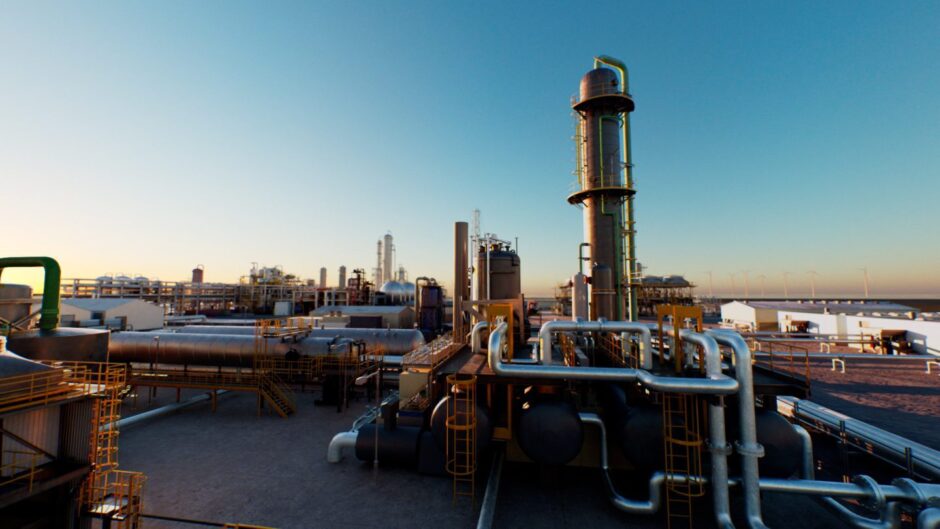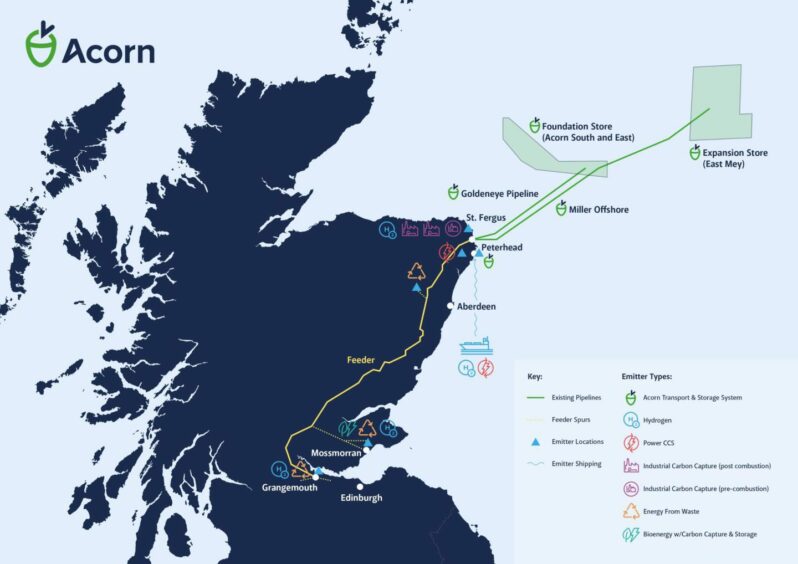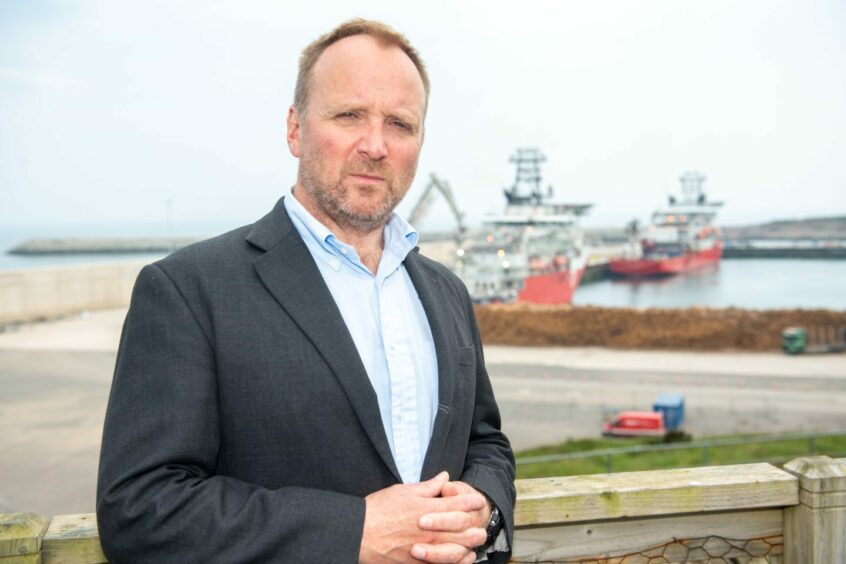
Two projects in the North of England aimed at sequestering carbon and producing hydrogen have won the full-throated support of the UK government and a pledge for nearly £22 billion over the next 25 years.
Prime Minister Keir Starmer, the Chancellor Rachel Reeves, and Energy Secretary Ed Miliband are visiting the North West of England on Friday to confirm two major carbon capture and storage (CCUS) projects in Teesside and Merseyside can now progress with long-awaited government backing.
But concerns have been raised over the fate of two North Sea CCUS projects, Acorn in Peterhead and Viking in Theddlethorpe.
Both of these were designated track-2 projects behind the track-1 schemes Hynet, which takes in sites including Liverpool Bay and the Stanlow manufacturing complex, and the East Coast Cluster, which comprises industrial projects across Teesside.
The government said the projects will will create 4,000 new jobs and help remove over 8.5 million tonnes of carbon emissions each year, as well as attract £8bn of private investment into the communities.
The bulk of the funding is not new. Former Chancellor Jeremy Hunt said he would back the sector with £20bn over 20 years. The new Labour government has thrown in a £1.7bn uplift but over a longer horizon.
CCUS has facing a number of challenges including delays in government investment and a lack of clarity around support for projects which has given pause to some major industrial investors.
According to trade body Offshore Energies UK (OEUK), the government has to play a role creating “clearer, more predictable funding processes beyond current market pricing, which is currently insufficient for CCS.
In a report the trade body said: “Relying solely on carbon markets will not be enough for CCUS technologies to succeed, given their high costs.”
The Carbon Capture and Storage Association (CCSA) welcomed the government’s decision, with the group’s CEO Olivia Powis saying: “The government’s confirmed support for carbon capture and storage and low-carbon hydrogen demonstrates their commitment to the UK’s journey to net zero.
“Today’s announcement shows that decarbonisation does not mean de-industrialisation, and highlights the UK’s leadership in these important technologies.”
“The industry has made significant strides towards deploying carbon capture projects and by progressing the first two CCUS clusters in the North West and North East of England, it means that we can deliver thousands of new highly skilled jobs whilst reducing our CO2 emissions and retaining existing jobs in our industrial areas in critical industries like cement, chemicals and manufacturing across the UK.”
Panmure Liberum Ashley Kelty analyst said that while the future of the northern England schemes are “fine” the UK’s new energy minister can not afford further delay to roll out CCUS across the UK.
He also suggested there could even be an upside for the projects in the north-east and the Humber as they will be free to seek their own fortunes.
He said: “It would appear that track 1 is fine but the rest of the proposed projects are getting nothing.
“This does mean that Ed Miliband is going to miss his net zero targets by some way given the two track 1 projects aren’t going to be sufficient.
“On the positive side, the track 2 projects are now able to move on without the dead hand of Government weighing on them, so they will be able to get better funding – as there won’t be any Government interference about returns made etc.”
Recently Harbour Energy (LON: HBR), the backer of the Humber Viking CCS plans to issue tenders worth £25m in Q2 2025 on the project signalling it is open for business.
Executive vice-president of CCS at Harbour Energy Graeme Davies said: “We welcome progress on Track 1 and this is an important step towards making CCS at scale a reality in the UK. The Government now needs to accelerate Track 2 so that projects like Viking CCS can make a full and meaningful contribution to the UK’s emissions reduction targets.”
A spokesman for the Department of Energy Security and Net Zero (DESNZ) insisted the funding in Merseyside and Teesside “is just the start”.
He added: “We will have more to say in in the coming months about the next steps for carbon capture in Humberside, Scotland and elsewhere around the country.”
The SNP’s lead in Westminster and MP for Aberdeen South Stephen Flynn took aim at Labour’s handling of PetroIneos Grangemouth, which is set to shut down Scotland’s only oil refinery with losses of hundreds of jobs, and its North Sea tax policies which have been unpopular with oil and gas firms set to invest in CCUS.
“This really isn’t that hard – if you want economic growth, if you want to create jobs, if you want to develop a domestic supply chain, and if you want to hit net zero then you invest in the Acorn project.
“For years we’ve been waiting for the Tories to back this project and despite offering ‘change’ the Labour Government have followed the same path by prioritising projects in the North of England, offering the Scottish cluster no certainty at all.
“We’ve seen with Grangemouth what happens when you don’t invest in the energy transition and, at this point, Labour look desperate to repeat those mistakes with their absurd tax changes and failure to invest in CCUS here in the North East.
“We know that Ed Miliband and the Labour Party have lofty ambitions for net zero but their clumsy and clueless approach to the north-east indicates that they have no idea how to actually deliver on their aims.”
But the jobs boost expected in the North of England was welcomed by trades unions.
GMB general secretary Gary Smith said: “This is a serious step in the right direction and a welcome investment in jobs and industries after years of neglect under the previous administration.
“GMB has long called for this technology to be supported: it’s great to see these calls being answered.”
He added the announcement “shows what levelling up can really mean: good, well paid jobs reinvigorating communities”.
“If this positive news is followed by a quick decision to support Sizewell C, it shows that we finally have a Government with a serious industrial strategy that will rebuild our nation’s infrastructure after fourteen wasted years.”
However CCUS technology is not universally loved. Critics have argued the technology enables polluters, is unproven and unnecessary.
Climate think-tank E3G senior policy advisor Laith Whitwham said: “Overreliance on CCS will keep us hooked on expensive fossil fuels and should only be used as a last resort.
“Most industries will be able to electrify or use green hydrogen, sourced from renewables, which will be a more sustainable and cost-effective option. To ensure good value for taxpayer money, any public funding for CCS projects should be subject to a rigorous cost effectiveness test. Decarbonising industry is the economic opportunity of the century and the role for CCS will be limited.”
Recommended for you


 © HyNet
© HyNet © Supplied by Net Zero Teesside
© Supplied by Net Zero Teesside © Supplied by Storegga
© Supplied by Storegga © Supplied by Viking CCS
© Supplied by Viking CCS © Supplied by Image: Kami Thomson/
© Supplied by Image: Kami Thomson/